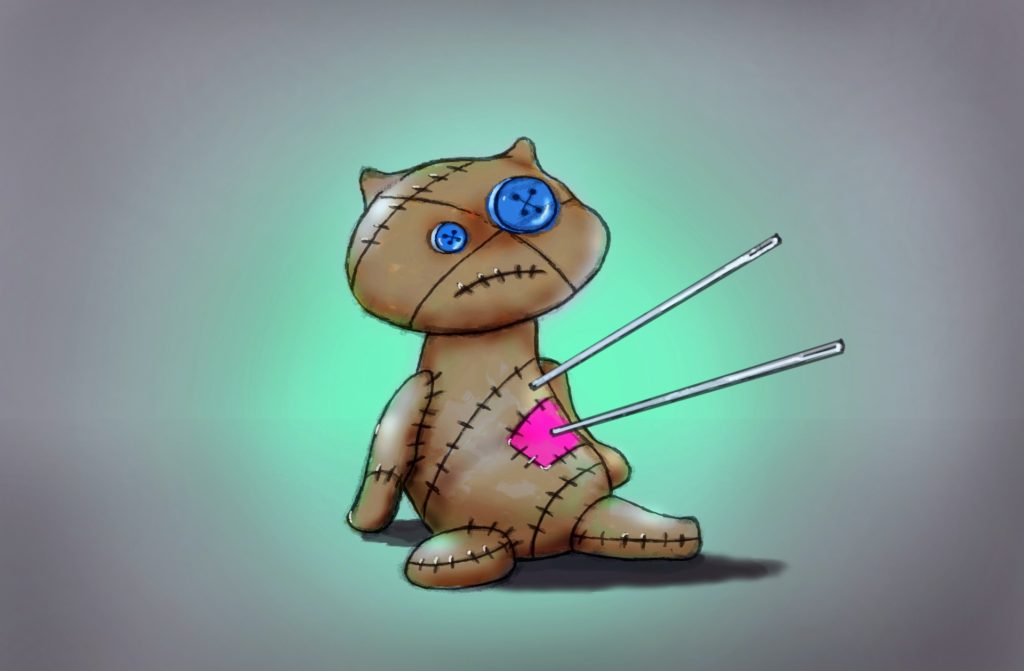If I had a penny for the number of times, I have heard someone say ‘I am feeling hurt’, I would be a millionaire. Ever since I started practicing empowerment coaching, the frequency of this phrase has increased manifold. Which is why the desire to write this blog and also because I recently felt I had an epiphany on how never to be hurt. So, read on to figure out my secret mantra!
Unhealthy Ways of Dealing with Hurt
The kinds of things that people do when they feel hurt by something someone said or did are myriad. However, I am going to do my best to put them into categories to make it easier for all of us.

Repress feelings – Sometimes we tend to ignore the feeling of hurt that we may be feeling. It is too hard to accept that someone close has done something that can cause us harm or we just do not want to acknowledge that they have the power to hurt us. In such situations, we tend to act nonchalant about the situation, hoping that no one will notice we are hurting and that it will go away over time. What we do not realize is that all repressed emotions fester in the long run and become unmanageable.
Feel sorry for yourself – If we are in a position to allow our feelings to be seen, we sometimes make ourselves the victim of the situation. We may verbalize our feelings of hurt and express them to others who will listen or even the perpetrator of the hurt. In the process, we might be seeking sympathy from another. This process makes us the victim and disempowers us from our own personal strength.
Break all ties – Avoidance is another tactic we use when we are hurt. We assume that if we distance ourselves from the one who has hurt us, we will take away their power to hurt us anymore. Toxic people should be kept at bay, right? Sometimes, however, it is not possible to break all ties with someone who hurts you because of other reasons and compulsions.
Lash out on others – Those with higher levels of testosterone (I am wondering as I write this whether it is an appropriate thing to say these days), may channel their hurt feelings into lashing out. Unfortunately, this lashing out is often directed towards other people who have nothing to do with the initial cause of pain. This only means that you end up alienating more and more people as time goes by, something that will leave you alone, lonely, and possibly depressed over time.
Blame others – When hurt, we may tend to blame others for the pain we are feeling. It is not uncommon for some to point a finger at the person who has hurt them. The blame game never really leads to a resolution of conflict and the crack between a relationship will only grow wider as blame after blame is hurled out.
Take revenge – Revenge is another unhealthy coping mechanism for hurt. We may tend to search for ways and means of ‘getting back’ at the one who has hurt us. We may end up spending hours, tossing and turning in the night, to think of what would hurt the person and the exact words to say to make the maximum (negative) impact! Such an unhealthy mechanism is often rationalized by saying that at least I will feel good after swinging back. But this reminds me of the quote – ‘An eye for an eye makes the whole world blind’. And that is what is likely to happen to the relationship between these two people who swing pain at each other in turns.
Helpful Ways of Coping with Hurt
Rather than indulging in the things mentioned above, here are some quick tips on what positive ways of dealing with hurt. However, I am not going to delve on these too much before I come to the main point of the post!
Mindfulness – Allow yourself to feel the emotion and acknowledge it. Only when you see your emotion from a witness point of view can you allow it to happen and then pass away.
Journal – A great way to figure out what you are feeling and why is to journal. This should be done in a non-judgmental state where you observe your thoughts, reflect on them and understand them.
Check your behavior – In case you are harboring thoughts about revenge or are taking your irritation on someone else, check your behavior and control it. There is great wisdom in taking a step back, assessing the situation, and then taking action. The one thing to ask yourself is how will this help the relationship?
Self-coaching – Obviously my favorite helpful way of coping with hurt is to coach yourself (if you cannot get hold of me, that is!). When you are trying to coach yourself, as these questions and make sure you answer them properly each time. A good way to make sure that you answer them honestly and diligently is to actually write down the answers.
- What exactly are you feeling? What name would you give this feeling? (For example, are you feeling let down, abandoned, belittled, ignored, etc.)
- Is there a pattern that you see in feeling like this? Have you felt this before? When was the first time you felt this feeling?
- How could I have contributed to the situation?
- If I swapped sides with the person who hurt me, how would I explain myself?
My Secret Mantra to Never Get Hurt!
There are essentially two reasons why we get hurt.
- We consciously or unconsciously expect that someone will do/say something or we that someone will not say/do something.
- Someone (even a stranger from whom we do not really expect anything) says or does something that triggers a deep insecurity within us.
Most of the time, we are told that we should limit our expectations in order to limit hurt. While this is absolutely true, the fact is that it takes a lot of time to get there. Even as we try and rid ourselves of our conscious expectations, there are these unconscious ones that announce themselves at the most unfortunate times.
So, this is how you can look at things when someone hurts you in order to avoid the pain.
When someone says or does something that hurts you, remember that what someone else says or does is about them, and not you.
If you take this stance with regards to the hurt you feel, you will be able to process the event in a better light. Something within that person made them behave the way they did. It could be their insecurity or their motivation and you are not in a position always to decode their inner struggles. This, however, does allow you to not take the comment or action on yourself or consider yourself a victim. At the same time, this kind of a mindset also allows you to be more compassionate and forgive the person easily!
A caveat to this whole thing is to remember to always look inside and honestly consider your insecurities. Oftentimes, we feel hurt when something is said about us that we do not acknowledge and accept in ourselves. For example, when I was in school and someone mentioned that I have a rough voice or that I was fat, it hurt me no end. This was obviously because I did not accept the way that I was. Now if anyone says the same things, they do not hurt me for I have accepted my voice for what it is and am no longer fat (lies do not hurt!)
Feature Image Attribution: Jerzy Górecki from Pixabay


You were never fat, Shiwani! You are broad built and not petite, that’s it. And by the way I love your voice.
What you are advocating requires immense practice but it is certainly doable.
I understand it requires practice but I also believe that we eventually and really ‘Live our entire life in our heads’. If we can sort that out, a lot gets sorted out by itself!